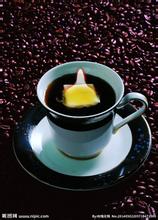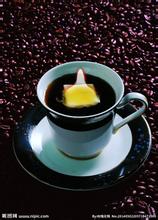Introduction to the characteristics of Panamanian Coffee Flavor Manor produced by washing
There are many ways of washing, but generally speaking, the floating beans are removed after the coffee fruit is picked, then the pulp is removed, and then the coffee beans are soaked in a fermentation trough. The enzymes in the water will soften the mucus attached to the peel of the coffee beans. Natural yeast will break down the sugar in the mucus, a process called fermentation. After the fermentation is completed, move the coffee beans to the sun field to dry. In the process of drying, you need to constantly turn the coffee beans to ensure the uniformity of the drying. Finally, the shell is kept in the warehouse, and some raw bean merchants place an order before shelling and bagging. The processed coffee tastes clean, emphasizing bright and lively acidity, as well as clear fruit flavor and floral aroma.
Therefore, it is conceivable that the superiority of the flower butterfly in the variety, coupled with fine treatment, if the use of medium-shallow baking to complete the final flavor trend of this bean. You will be able to give this flower butterfly, which has the unique fragrance of rose summer, Nanyang fruit and raspberry flavor, and has the sweetness and smoothness of honey, very long-lasting aroma and tail rhyme, with great certainty on the basis of very excellent quality. the price of this coffee bean is very cost-effective. What is special about this coffee bean is that it is made up of three varieties, of which 40% are rosy summer varieties, giving this coffee a distinct rosy summer flavor. According to the information obtained, due to the historical reasons of the manor, in order to pursue yield at that time, the early Rosa varieties were mixed with the coffee trees of Kaddura and Kaduai, and in order to facilitate picking, coffee farmers did not reclassify them, but directly mixed the three varieties. After that, as Rosa rose to fame and the price soared, the processing plant began to carry out fine washing treatment for such a coffee bean.

Important Notice :
前街咖啡 FrontStreet Coffee has moved to new addredd:
FrontStreet Coffee Address: 315,Donghua East Road,GuangZhou
Tel:020 38364473
- Prev

A very strong Indonesian mantenin coffee introduction Indonesian mantenin coffee estate
The Japanese adopted stricter quality control more than ten years ago. After four manual bean picking and eliminating defective beans, they produced dark green and uniform gold mantin.This created another wave of market demand, and even Europe and America were crazy about it. Aged mandheling, sweet as honey. Successful aging of the beans, will be the mantenin not elegant sour wear off. acid
- Next

Introduction to St. Thomas producing area of Blue Mountain Coffee Flavor Manor
Blue Mountain Coffee perfectly combines the unique sour, bitter, sweet, mellow and other flavors of coffee to form a strong and attractive elegant flavor, which is unmatched by other coffee. People who love Blue Mountain Coffee say: it is a coffee beauty that combines all the advantages of good coffee. Jim, general manager of Pitt, which is famous for coffee and tea in the United States, described Blue Mountain Coffee by saying: it tastes fragrant.
Related
- Detailed explanation of Jadeite planting Land in Panamanian Jadeite Manor introduction to the grading system of Jadeite competitive bidding, Red bid, Green bid and Rose Summer
- Story of Coffee planting in Brenka region of Costa Rica Stonehenge Manor anaerobic heavy honey treatment of flavor mouth
- What's on the barrel of Blue Mountain Coffee beans?
- Can American coffee also pull flowers? How to use hot American style to pull out a good-looking pattern?
- Can you make a cold extract with coffee beans? What is the right proportion for cold-extracted coffee formula?
- Indonesian PWN Gold Mandrine Coffee Origin Features Flavor How to Chong? Mandolin coffee is American.
- A brief introduction to the flavor characteristics of Brazilian yellow bourbon coffee beans
- What is the effect of different water quality on the flavor of cold-extracted coffee? What kind of water is best for brewing coffee?
- Why do you think of Rose Summer whenever you mention Panamanian coffee?
- Introduction to the characteristics of authentic blue mountain coffee bean producing areas? What is the CIB Coffee Authority in Jamaica?

